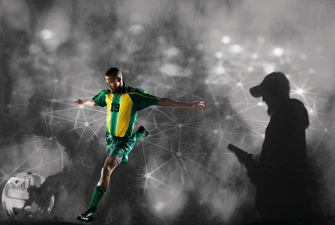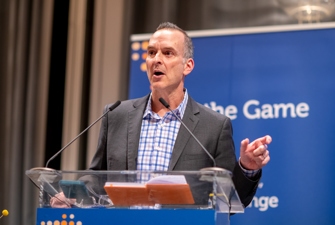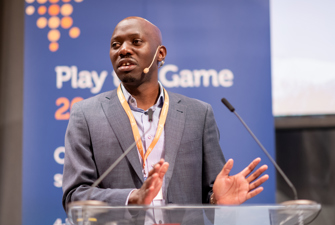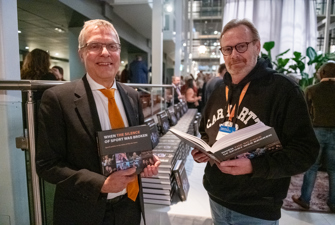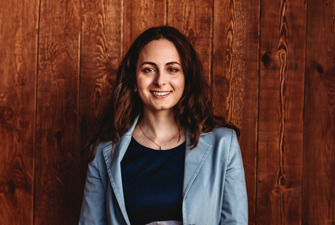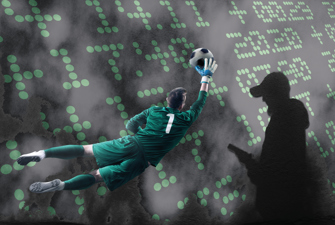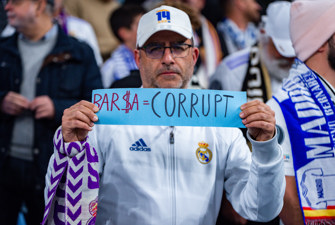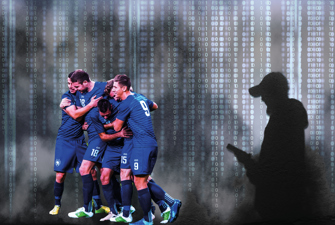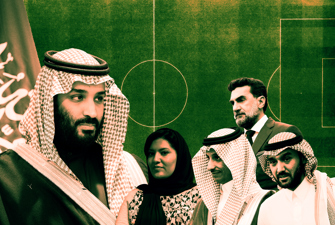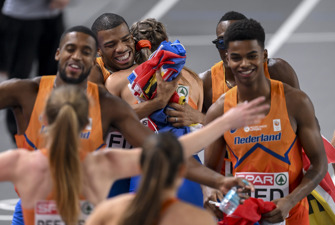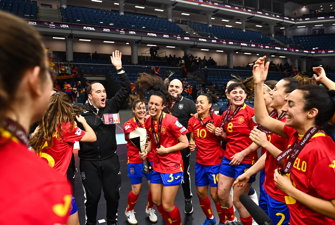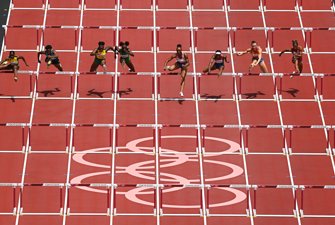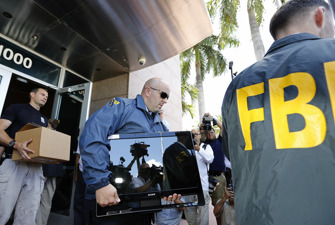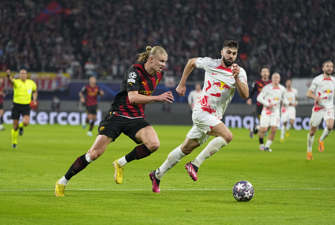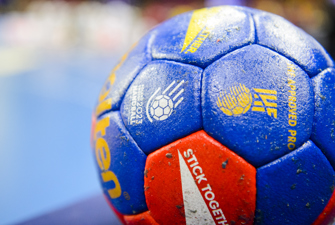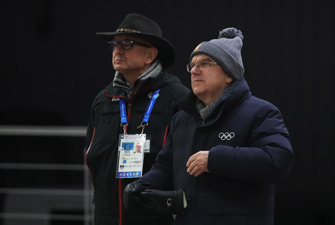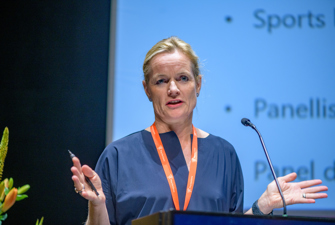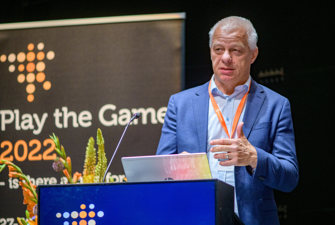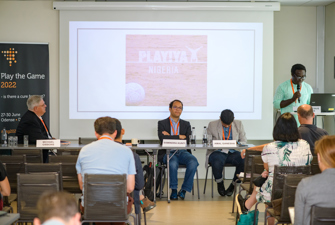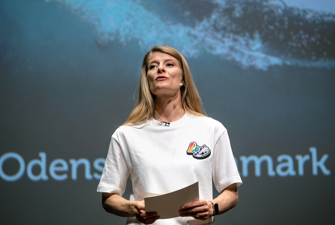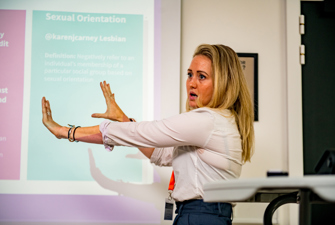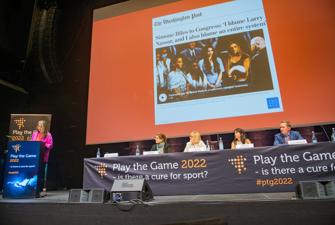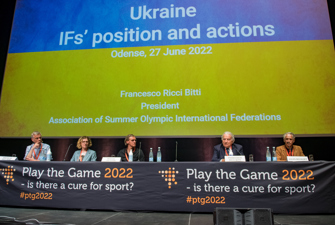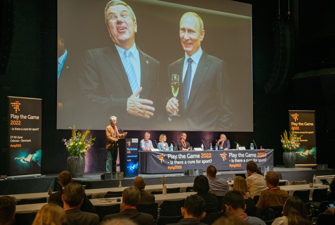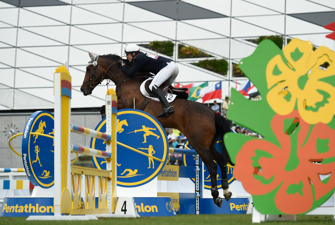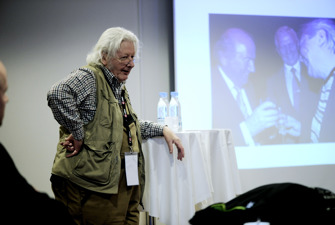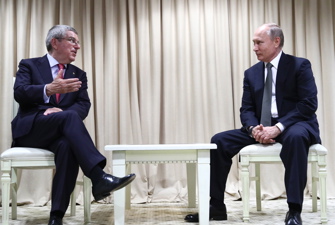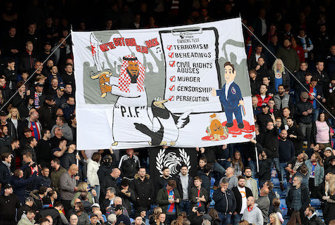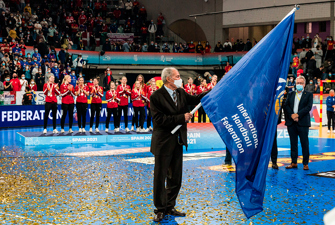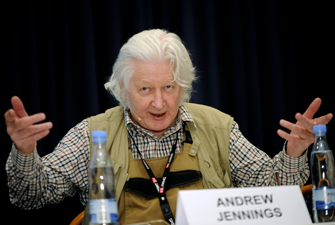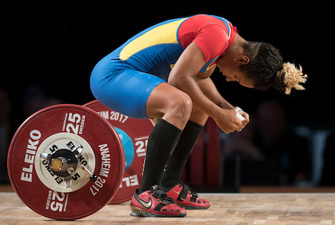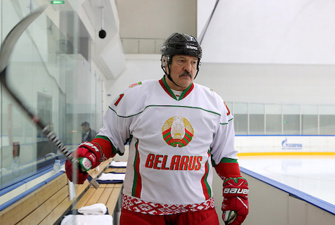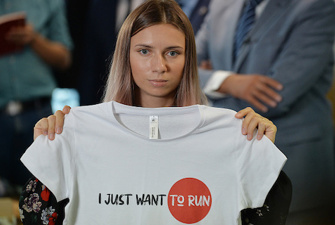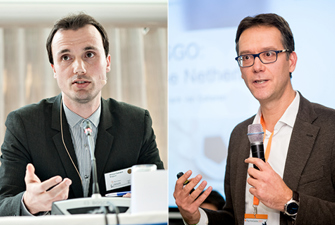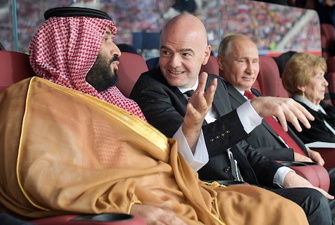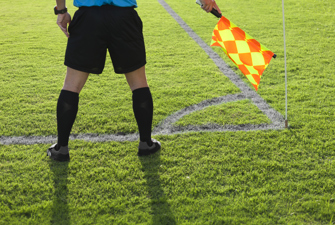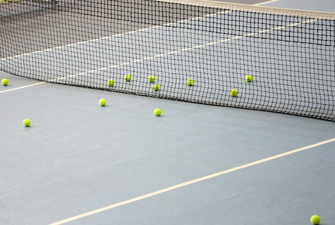It’s all about money, power and politics
Are corruption and kickbacks in the DNA of the sports world? Certainly, bad governance is not only haunting sport on the international level. Play the Game tells you the story about the troubled waters in a minor, but populous sports nation, the Philippines.
Updated on 27 November 2016 - see bottom of the page
In August 2016, Hidilyn Diaz came back from the Olympics in Rio de Janeiro with a silver medal in the weightlifting 53 kg division for women. It was the first Philippine medal at an Olympics in 20 years, and just the tenth, since the country’s entry in 1924. The Philippines have never won a gold medal.
When the 25 years old weightlifter came back to Manila, she was applauded by the president, the politicians, sports leaders and the people. The president of the Philippine Olympic Committee (POC), Jose ‘Peping’ Cojuangco Jr., said; “the outlook is bright for the Philippines in preparing for the 2020 Tokyo Olympics with a supportive government, a wealth of lessons from the Rio experience and a fresh drive inspired by weightlifter Hidilyn Diaz’ silver medal.”
But not everybody cheered: “We did well because we got silver? I don’t think we did well. One silver! A country with more than 100 million people,” Al Panlilio says to Sport Executive.
Panilio is the president of the biggest sports federation in the Philippines, the Philippine basketball federation ‘Samahang Basketbol ng Pilipinas’ (SBP), and one of the most successful businessmen in the Philippines as senior vice president in Meralco, one of the biggest companies in the country.
Corruption does exist
With ten medals distributed over 92 years, Philippine sport has never really come out of the starting block. For decades, if not forever, Philippine sports have been racked by corruption, kickbacks, favoritism, lawsuits and politics.
“We know that the corruption in the sport is big and not good. I think, that Philippine sports right now aren’t well run. On top of this, you have the patronage system with deserving athletes not being chosen. We have to put the right people in the right positions now and in the future,” senator Manny Pacquiao, a legendary boxer, a historic eight-division champion and chairman of the Senate’s Committee on Sports, says.
The corruption, the kickbacks and the favoritism have determined the country’s sports both on elite and grassroots level. The grassroots is virtually non-existent, and the elite suffers from a lack of or outdated facilities, old school training, absent sport science, bad management and no money.
Heading Philippine sports for the last 12 years is Jose ‘Peping’ Cojuangco Jr, an 82-year-old man from the political dynasty Cojuangco/Aquino. Better known from the family are Peping’s sister, former president of the Philippines from 1986 to 92, Corazon Aquino, and her son and Peping’s nephew, former president of the Philippines from 2010 to 2016, Benigno Aquino III. But ‘Peping’ has himself been a congressman in the Philippine Parliament. On top of this mighty political influence comes, that the Cojuangco/Aquino family is one of the richest in the Philippines.
Ruled by tyrants
Since January 1, 2005, Jose ‘Peping’ Cojuangco Jr. has been running the POC – some would say as his own private toy and private business. On November 25, 2016, the 82-year-old seeks a fourth term as president of the POC, but this time he has a contestant. The president of the Association of Boxing Alliances in the Philippines (ABAP), Ricky Vargas, has announced his candidacy with a backing group from cycling, basketball, muay thai and table tennis to take the other positions in the POC. But Jose ‘Peping’ Cojuangco Jr. is not a former politician and from a family in the forefront of the Philippine society since the Spanish period for no reason; he always has a few tricks up his sleeves.
A POC Election Committee has to approve the candidacy and to head this committee Jose ‘Peping’ Cojuangco Jr. has placed his old friend, ally and former member of the International Olympic Committee (IOC), the 84-year-old Frank Elizalde. Frank & Co. ‘surprisingly’ disqualified Ricky Vargas from running for president of the POC. Reason: Vargas failed to meet election requirement under Article 7 Section 11 of the POC Constitution saying, that the president and the chairman of the POC should have been an ‘active member of the POC general assembly for two consecutive years at the time of their election’. And Vargas had sent his director of ABAP, Ed Picson, to the assembly and meetings in the POC. Vargas is now going to court to get a temporary restraining order – and is considering going to the Court of Arbitration for Sport (CAS).
It is not the first time Jose ‘Peping’ Cojuangco Jr. has been accused of ruling without fair play. In 2012, the president of the Philippine Amateur Track and Field Association, Go Teng Kok, tried to challenge Jose ‘Peping’ Cojuangco Jr., but he, too, failed. At that time, the POC disqualified Go Teng Kok too – as ‘a persona non grata’, but Kok took the disqualification to Pasig City Regional Trial Court who nullified the POC decision. However, hours before the election, Go Teng Kok suddenly withdraw his bid to run for president. Some say, but probably not true, that Kok was bought off – an Olympic year is not only election time in the POC, but also envelope time, during which a vote in the election, according to some sources, costs from 2 million pesos, about USD 43,000, and positive press in the media 50,000 pesos, about USD 1,100. 43 members are eligible to vote in the election of the president of Philippine Olympic Committee, a private association under the flag and rules of IOC.
“Philippine sport is doomed. Unless change are here. The decision was clearly premeditatedly designed with the intention to keep the POC forever in the hands of the existing leadership. If they succeed, Philippine sports will continue to be run by tyrants. Transparency and democracy? We don’t know those words in the Philippines,” Nikki Coseteng, a former senator and current chairman of the Philippine Swimming League (PSL), one of the many POC breakaway groups in Philippine sports, declares.
Ramon Fernandez is even more outspoken. He is a sports commissioner at the Philippine state’s Philippine Sports Commission (PSC), which supports sport in the Philippines. He says:
“Jose ‘Peping’ Cosejuangco Jr. missed his chance to be on the right side of history by choosing desperately to cling to power notwithstanding strong and unmistakable calls for change in the POC leadership. By doing the unfair and unpatriotic act of hiding behind the skirt of technicalities, Peping and his minions killed freedom and democracy in Philippine sports.”
We will get rid of the old man
Maybe this time Jose ‘Peping’ Cojuangco Jr. suddenly has a bigger and greater opponent than a man from the local boxing scene. In another and bigger presidential palace, the Malacanang, sits Rodrigo Duterte. He stormed into office on June 30, 2016 on promises of change and wows to fight corruption and crime in the Philippines. One of the president’s first actions was to install a new leadership of the Philippine Sports Commission (PSC), among them Ramon Fernandez.
PSC is ‘the state department for sport’ since 1990, and PSC has to serve and develop grassroots and elite sports trough own initiatives and trough the national sports associations, but not to fund the POC. The PSC’s funding comes mostly from charges from the Philippine gambling industry, PAGCOR. But when Benigno Aquino III, the nephew of Jose ‘Peping’ Cosejuangco Jr., took office in the Malacanang in 2010, he appointed Richie Garcia as chairman of the PSC, and Garcia started to fund the POC. In the period 2010-16, he gave the POC 129,607,590.81 pesos, USD 2,776,215 – contrary to the law.
Among the many expenses are a bill for the hotel accommodation in the Beijing Olympics 2008, two bills for the cultural event the Asian Games Centennial Festival and a bill for a party for Jose ‘Peping’ Cosejuango Jr.’s daughter, Mikee Cojuangco-Jaworski, IOC member since 2013. The bill to PSC from the non-sporting event Asian Games Centennial Festival even came twice, because the festival was canceled due to typhoon Haiyan in 2013, after which the bill was sent again the following year.
“The PSC has by law no mandate to give all this money to the POC. They even funded the same event twice! The Asian Games Centennial Festival isn’t even a sporting event – and by the way, the event was funded by the Olympic Council of Asia (the governing body of all sports in Asia, recognised by the IOC, ed.),” the spors commissioner Ramon Fernandez tells Play the Game.
Ramon Fernandez has now handed the PSC accounting for grants to the POC over to the state’s Commission on Audit, the department tasked with the audit of all government revenues, resources and other expenditures, to clarify whether it is legal or not? And in the Parliament, the Senate’s Committee on Sports will ‘conduct an inquiry, in aid of legislation, on the alleged unliquidated funds released to the Philippine Olympic Committee and the unjust imposition of eligibility requirements for the candidates for POC president thereby limiting the participation of other members’.
“I do not know when something happens. But, we will get rid of the old man. That is our priority now. We don’t care, if we get suspended by the IOC. We will launch our program, and it will be a truthful program for the grassroots,” Ramon Fernandez states.
His chairman at the PSC, Butch Ramirez, is more diplomatic:
“POC and Jose ‘Peping’ Cosejuangco Jr.? I have no positive things to say about the leadership in POC. But it is not my problem. It is a private association. But I have told the national sports associations: If you don’t behave, there is no funding. It’s public money.”
Politics takes it all
It is not the first time Jose ‘Peping’ Cosejuangco Jr. has been under fire. Back in 2009, the heads of billiard, badminton, equestrian, wushu, archery, cycling and wrestling federations signed a ten-point concern for Philippine sports with concrete objections of the POC interfering in the internal affairs of national sports associations. Or as they put it: “Trampling on their (the NSA’s, ed.) autonomy and rights, making a mockery of their elections and betraying the basic principles of the POC and the POC General Assembly.”
The petition had no luck. Jose ‘Peping’ Cosejuangco Jr. and his henchmen know how to handle recalcitrant federations. With the politics of patronage, using political savvy, largesse and intimidation Jose ‘Peping’ Cosejuangco Jr. seems to get his way with the NSA’s. For example in volleyball, the second-most popular sport in the Philippines after basketball. Here, a critical Philippine Volleyball Federation (PVF) got excluded from the Olympic family and from the international volleyball family back in 2013. Instead, Jose ‘Peping’ Cosejuangco Jr. installed his henchman and vice president in the POC, Joey Romasanta, as the president of a new federation, Larong Volleyball sa Pilipinas (LVPI), recognized by the POC and, until now, the international volleyball federation, FIVB. Romasanta has previously been the president of the national federations of softball and karate.
“They wanted to stay in power – and they saw the money in volleyball. They needed an Olympic sport too. First, they had their sight on track and field and then on swimming, but in the end, they took volleyball. The problem is really everywhere in Philippine sports. They want to stay in power, and the guys with the political connections win,” Karl Chan, secretary general of the still existing PVF, says.
The PVF has repeatedly complained to FIVB, and the international federation recently, in October 2016, decided to create an ad hoc commission for the Philippines. A decision on whether the PVF or the LVPI will represent Philippine volleyball international will be taken by the FIVB congress in 2018… The PVF also sent a complaint to the IOC – without any answer so far…
Death struggle has begun
Jose ‘Peping’ Cosejuangco Jr. has managed to stay in power despite fierce criticism. At least until November 25, 2016 – and at least until a stronger president in a bigger palace without political connection to the Cosejuangco/Aquino family took the stage. But can the 82-year-old politically sly man survive an audit investigation, a senate hearing, an attack from ‘The Punisher from Davao’ – alias the president Rodrigo Duterte – and an election?
Maybe we should let Christy Ramos, the daughter of the former president Fidel Ramos (1992-98) and the former president of the Philippine Olympic Committee - until she was ousted in April 1999 after her father had left the office at the Malacanang, have the last words:
“There are all those macho men in the POC. They have been there forever. And they are still there. They travel at first class, and they want their daily diets – in dollars. Jose ‘Peping’ Cosejuangco Jr.? He is a rich guy and hasn’t anything else to do. That is the mentality here. They just drain the people’s money.”
Or, some other last words from the businessman Al Panlilio:
“Jose ‘Peping’ Cosejuangco Jr.? I know him. I’d rather not put a comment there. You know the answer. Just look at the results in Philippines sports…”
--------------------------------------------------------------
Update 27 November 2016:
Four more years for Peping
Jose ‘Peping’ Cosejuangco Jr. is the president of the Philippine Olympic Committee (POC) until November 2020. The 82-year-old man ran unopposed for the presidency, because his opponent, boxing’s Ricky Vargas was disqualified by the POC Election Committee and failed to get a temporary restraining order for the election by the Philippine court. However, Jose ‘Peping’ Cosejuangco Jr. only got 26 votes out of 43. Ricky Vargas, cycling’s Abraham Tolentino and triathlon’s Tom Carrasco did not show up during the proceedings at the Wack Wack Golf and Country Club.
The POC president since 2005 also had his henchmen elected to the POC board.
After the election Jose ‘Peping’ Cosejuangco Jr. called for healing:
“Healing is automatic. We have to restore harmony in the POC. I’ve been to a lot of elections in my life and that’s always the case. When the game is over the idea is to put everybody together and go for the objective of helping the community.”
However, there is little evidence on ceasefire in Philippine sports. On November 29 the Senate’s Committee on Sports, chaired by the legendary boxer Manny Pacquiao, holds a hearing on the alleged unliquidated funds released to the POC, and the state’s department of sports, the Philippine Sports Commission (PSC), also looks at Jose ‘Peping’ Cosejuangco Jr.’s reign:
“We all expected the result. Jose ‘Peping’ Cosejuangco Jr. made sure this time that no one will qualify to challenge him. We are calling all NSAs to hear out their complaints against the POC. We will not fund the NSAs that are mismanaged,” the sports commissioner Ramon Fernandez says to Play the Game.
Sport Executive/Play the Game has tried to get in contact with Mr. Jose ‘Peping’ Cosejuangco Jr. in person, on phone and on email. He has not answered our questions. Similarly, we have tried to get in contact with his vice president, Joye Romasante. The result was the same.
Sport Executive/Play the Game is in possession of the PSC accounting for grants to the POC – and the evidence of what the POC has used the money for in the period 2010-16.
